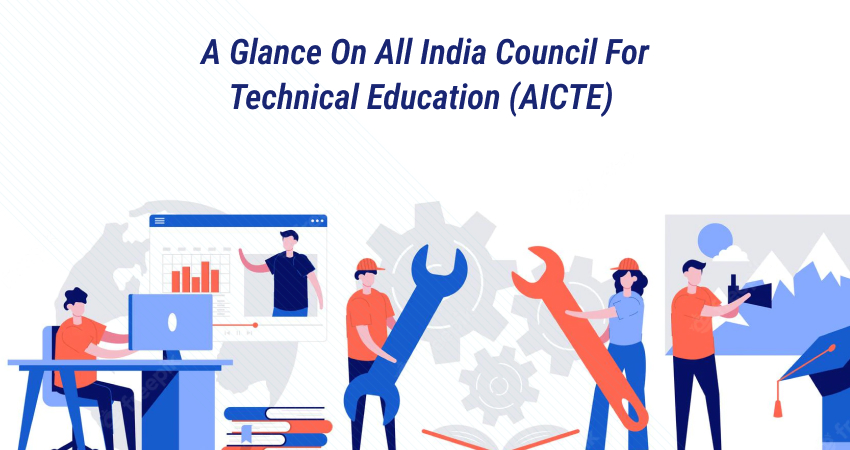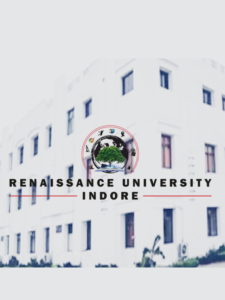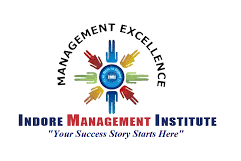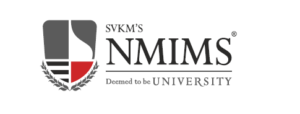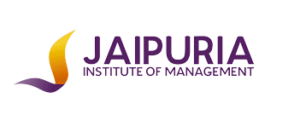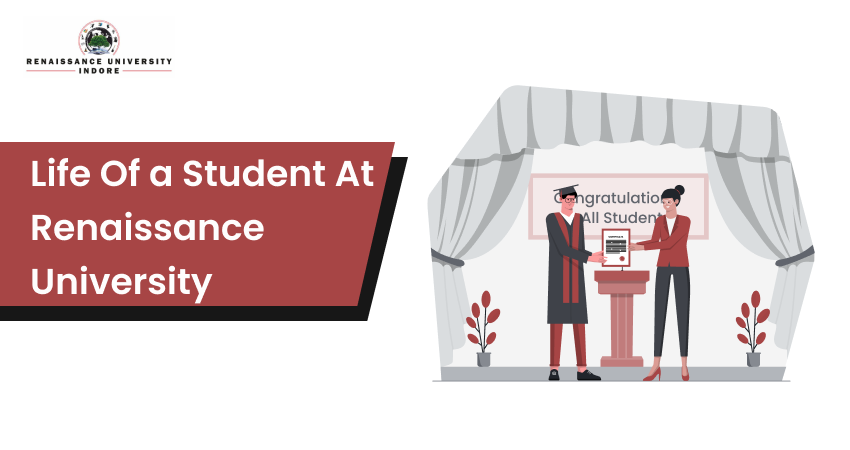Ph.D. & FPM
A Ph.D. in management, also known as a Doctor of Business Administration (DBA) or a Doctor of Management (DM), is a research-based degree that focuses on advanced business and management principles. On the other hand, a Fellow Program in Management (FPM) is a doctoral-level program offered by Renaissance University that aims to develop research capabilities in management and related fields.
One of the main differences between a Ph.D. in management and an FPM is the scope of the study. A Ph.D. in management typically covers a wider range of business and management topics, including finance, marketing, organizational behavior, and strategy, among others. An FPM, on the other hand, is more focused on specific areas of management research and tends to be more specialized.
Another difference is the structure of the programs. A Ph.D. in management is typically a full-time program that lasts for 3-5 years and involves coursework, comprehensive exams, and the completion of a dissertation. An FPM is also a full-time program that typically lasts for 4-5 years and involves coursework, comprehensive exams, and the completion of a dissertation. However, the FPM program includes a mandatory internship component, which allows students to gain practical experience and apply their research skills in a real-world setting.
In terms of career prospects, a Ph.D. in management can open up a wide range of opportunities in academia, research, and business. Individuals with a Ph.D. in management may be eligible for faculty positions at universities, or they may pursue careers in research or consulting. An FPM, on the other hand, is primarily geared toward preparing individuals for careers in academia and research and is highly respected in India and other parts of the world.
Both a Ph.D. in management and an FPM are prestigious and highly respected degrees that can lead to rewarding careers in academia and research. However, the scope and focus of these programs can differ significantly, and it’s important for individuals to carefully consider their career goals and interests before choosing a program.
What is Ph.D.? Management
A Ph.D. in Management in India is a research-based degree program that focuses on advanced business and management principles. It is designed for individuals who are interested in pursuing careers in academia, research, or management in the business world.
In India, a Ph.D. in Management is typically a full-time program that lasts for 3-5 years and involves coursework, comprehensive exams, and the completion of a dissertation. The program covers a wide range of business and management topics, including finance, marketing, organizational behavior, and strategy, among others.
To be eligible for a Ph.D. in Management in India, individuals must typically hold a master’s degree in a related field, such as business administration or management. They may also be required to take entrance exams and complete an interview process.
A Ph.D. in Management in India can be a highly rewarding and challenging experience that can lead to a variety of career opportunities in academia, research, and the business world. It can also provide individuals with advanced knowledge and expertise in business and management that can be valuable in a variety of career contexts.
What is FPM?
FPM stands for Fellow Program in Management and is a doctoral-level program offered by the Indian Institutes of Management (IIMs) that aims to develop research capabilities in management and related fields. It is a full-time program that typically lasts for 4-5 years and involves coursework, comprehensive exams, and the completion of a dissertation.
The FPM program is highly specialized and focuses on specific areas of management research, such as finance, marketing, organizational behavior, and strategy. It also includes a mandatory internship component, which allows students to gain practical experience and apply their research skills in a real-world setting.
To be eligible for the FPM program, individuals must typically hold a master’s degree in a related field, such as business administration or management. They may also be required to take entrance exams and complete an interview process.
An FPM degree is highly respected in India and other parts of the world and is primarily geared toward preparing individuals for careers in academia and research. It can provide individuals with advanced knowledge and expertise in management and related fields and can be a valuable asset in a variety of career contexts.
Ph.D. Vs FPM in India: What is the difference?
A Ph.D. in management, also known as a Doctor of Business Administration (DBA) or a Doctor of Management (DM), is a research-based degree that focuses on advanced business and management principles. On the other hand, a Fellow Program in Management (FPM) is a doctoral-level program offered by Renaissance University that aims to develop research capabilities in management and related fields.
One of the main differences between a Ph.D. in management and an FPM is the scope of the study. A Ph.D. in management typically covers a wider range of business and management topics, including finance, marketing, organizational behavior, and strategy, among others. An FPM, on the other hand, is more focused on specific areas of management research and tends to be more specialized.
Another difference is the structure of the programs. A Ph.D. in management is typically a full-time program that lasts for 3-5 years and involves coursework, comprehensive exams, and the completion of a dissertation. An FPM is also a full-time program that typically lasts for 4-5 years and involves coursework, comprehensive exams, and the completion of a dissertation. However, the FPM program includes a mandatory internship component, which allows students to gain practical experience and apply their research skills in a real-world setting.
In terms of career prospects, a Ph.D. in management can open up a wide range of opportunities in academia, research, and business. Individuals with a Ph.D. in management may be eligible for faculty positions at universities, or they may pursue careers in research or consulting. An FPM, on the other hand, is primarily geared toward preparing individuals for careers in academia and research and is highly respected in India and other parts of the world.
Both a Ph.D. in management and an FPM are prestigious and highly respected degrees that can lead to rewarding careers in academia and research. However, the scope and focus of these programs can differ significantly, and it’s important for individuals to carefully consider their career goals and interests before choosing a program.
Duration of Ph.D. in management And FPM
A Ph.D. in Management is typically a full-time program that lasts for 3-5 years. It involves coursework, comprehensive exams, and the completion of a dissertation, which is a substantial piece of original research that must be defended before a panel of experts.
A Fellow Program in Management (FPM) is also a full-time program that typically lasts for 4-5 years. It involves coursework, comprehensive exams, and the completion of a dissertation. In addition to these requirements, the FPM program includes a mandatory internship component, which allows students to gain practical experience and apply their research skills in a real-world setting.
It’s important to note that the duration of a Ph.D. in Management or an FPM program can vary depending on a variety of factors, including the specific program, the individual’s progress, and any breaks or interruptions. In general, however, these programs are designed to be completed in a relatively short period of time, given their intensity and focus on research.
Ph.D. Fees in India
The cost of a Ph.D. in India can vary significantly depending on a number of factors, including the specific program, the institution offering the program, and the individual’s circumstances. Some universities and institutions may charge tuition fees for Ph.D. programs, while others may offer funding or scholarships to cover the cost of tuition and other expenses.
In general, the cost of a Ph.D. in India can range from a few lakh rupees to several lakh rupees or more, depending on the program and institution. Some universities and institutions may charge a flat fee for the entire program, while others may charge fees on a semester-by-semester or year-by-year basis.
It’s important to note that the cost of a Ph.D. in India can also vary depending on the individual’s living expenses and other personal expenses. Some institutions may provide housing and other amenities for Ph.D. students, while others may not. In addition, students may need to budget for transportation, food, and other living expenses.
To get a more accurate estimate of the cost of a Ph.D. in India, it’s a good idea to contact the institution offering the program and ask about their tuition fees and any funding or scholarship opportunities that may be available.
FPM Fees in India
The cost of a Fellow Program in Management (FPM) in India can vary significantly depending on the specific program and institution. Some IIMs may charge tuition fees for their FPM programs, while others may offer funding or scholarships to cover the cost of tuition and other expenses.
In general, the cost of an FPM in India can range from a few lakh rupees to several lakh rupees or more, depending on the program and institution. Some IIMs may charge a flat fee for the entire program, while others may charge fees on a semester-by-semester or year-by-year basis.
It’s important to note that the cost of an FPM in India can also vary depending on the individual’s living expenses and other personal expenses. Some IIMs may provide housing and other amenities for FPM students, while others may not. In addition, students may need to budget for transportation, food, and other living expenses.
To get a more accurate estimate of the cost of an FPM in India, it’s a good idea to contact the IIM offering the program and ask about their tuition fees and any funding or scholarship opportunities that may be available.
Specializations in Ph.D. in Management program
There are many different specializations that can be pursued within a Ph.D. in Management program. Some common specializations include:
- Strategic Management: This specialization focuses on how firms make strategic decisions and how they can create and sustain competitive advantages.
- Organizational Behavior: This specialization focuses on how individuals, groups, and organizations behave and interact within the context of business.
- Marketing: This specialization focuses on firms’ marketing activities to attract and retain customers.
- Finance: This specialization focuses on financial decision-making, including the management of financial assets and liabilities, financial forecasting, and risk management.
- Operations Management: This specialization focuses on the design, operation, and improvement of systems that produce goods and services.
- Information Systems: This specialization focuses on the use of information technology in organizations, including the design and implementation of computer systems to support business processes.
- Entrepreneurship: This specialization focuses on the creation and management of new ventures, including the development of business plans and the identification of new opportunities.
- International Business: This specialization focuses on the challenges and opportunities of doing business in a global context, including issues related to cross-cultural communication, international trade, and foreign market entry.
- Human Resource Management: This specialization focuses on the management of people within organizations, including the recruitment, selection, training, and development of employees.
- Business Ethics: This specialization focuses on the ethical and social responsibility issues that organizations face, including topics such as corporate governance, corporate social responsibility, and stakeholder management.
There may be other specializations offered by specific universities or programs, so it is important to carefully research the offerings of individual programs before applying.
Specializations in the FPM program
FPM stands for Fellow Program in Management, which is a postgraduate research program in management offered by the Indian Institutes of Management (IIMs). The FPM program is similar to a Ph.D. in Management program in other countries, but it is specific to the Indian education system.
Some common specializations that may be available within an FPM program include:
- Strategic Management: This specialization focuses on how firms make strategic decisions and how they can create and sustain competitive advantages.
- Organizational Behavior: This specialization focuses on how individuals, groups, and organizations behave and interact within the context of business.
- Marketing: This specialization focuses on firms’ marketing activities to attract and retain customers.
- Finance: This specialization focuses on financial decision-making, including the management of financial assets and liabilities, financial forecasting, and risk management.
- Operations Management: This specialization focuses on the design, operation, and improvement of systems that produce goods and services.
- Information Systems: This specialization focuses on the use of information technology in organizations, including the design and implementation of computer systems to support business processes.
- Entrepreneurship: This specialization focuses on the creation and management of new ventures, including the development of business plans and the identification of new opportunities.
- International Business: This specialization focuses on the challenges and opportunities of doing business in a global context, including issues related to cross-cultural communication, international trade, and foreign market entry.
- Human Resource Management: This specialization focuses on the management of people within organizations, including the recruitment, selection, training, and development of employees.
- Business Ethics: This specialization focuses on the ethical and social responsibility issues that organizations face, including topics such as corporate governance, corporate social responsibility, and stakeholder management.
There may be other specializations offered by specific Renaissance universities or programs, so it is important to carefully research the offerings of individual programs before applying.
Ph.D. in Management Eligibility Criteria
Eligibility criteria for a Ph.D. in Management program may vary by institution and country, but generally, the following are some common requirements:
- A Master’s degree in Management or a related field: Many Ph.D. in Management programs require applicants to have a Master’s degree in Management, Business Administration, Economics, or a related field.
- A strong academic record: Most Ph.D. in Management programs require applicants to have a strong academic record, with a GPA of 3.0 or higher on a 4.0 scale.
- Research experience: Many Ph.D. in Management programs require applicants to have some research experience, such as through coursework or independent research projects.
- Letters of recommendation: Most Ph.D. in Management programs require applicants to provide letters of recommendation from professors or other academic references who can speak to the applicant’s potential as a researcher.
- A statement of purpose: Most Ph.D. in Management programs require applicants to submit a statement of purpose that outlines their research interests and goals and explains how a Ph.D. in Management will help them achieve those goals.
- A writing sample: Some Ph.D. in Management programs may require applicants to submit a writing sample, such as a research paper or thesis, to demonstrate their writing and research skills.
- English language proficiency: Many Ph.D. in Management programs require applicants to demonstrate proficiency in English, either through a test such as the TOEFL (Test of English as a Foreign Language) or through completion of a degree program taught in English.
It is important to note that these are just some general requirements, and specific programs may have additional or different requirements. It is always best to check with individual programs for their specific eligibility criteria.
FPM Eligibility Criteria
FPM stands for Fellow Program in Management, which is a postgraduate research program in management offered by the Indian Institutes of Management (IIMs). The FPM program is similar to a Ph.D. in Management program in other countries, but it is specific to the Indian education system.
Eligibility criteria for the FPM program may vary by institution, but generally, the following are some common requirements:
- A Master’s degree in Management or a related field: Most FPM programs require applicants to have a Master’s degree in Management, Business Administration, Economics, or a related field.
- A strong academic record: Most FPM programs require applicants to have a strong academic record, with a GPA of 3.0 or higher on a 4.0 scale.
- Research experience: Many FPM programs require applicants to have some research experience, such as through coursework or independent research projects.
- Letters of recommendation: Most FPM programs require applicants to provide letters of recommendation from professors or other academic references who can speak to the applicant’s potential as a researcher.
- A statement of purpose: Most FPM programs require applicants to submit a statement of purpose that outlines their research interests and goals, and explains how an FPM program will help them achieve those goals.
- A writing sample: Some FPM programs may require applicants to submit a writing sample, such as a research paper or thesis, to demonstrate their writing and research skills.
- English language proficiency: Many FPM programs require applicants to demonstrate proficiency in English, either through a test such as the TOEFL (Test of English as a Foreign Language) or through completion of a degree program taught in English.
It is important to note that these are just some general requirements, and specific programs may have additional or different requirements. It is always best to check with individual programs for their specific eligibility criteria.
Ph.D. in Management Vs FPM Career and Salary
A Ph.D. in Management and an FPM (Fellow Program in Management) are both advanced research degree programs in the field of management. Both programs involve in-depth study and research in a specific area of management, and both lead to careers in academia or research.
In terms of career prospects, those who hold a Ph.D. in Management or an FPM degree may be eligible for a variety of academic and research positions, including positions as professors or researchers at universities, colleges, or research institutes. They may also be able to work in government agencies or private companies as researchers or consultants.
In terms of salary, the earning potential for those with a Ph.D. in Management or an FPM degree may vary depending on a variety of factors, including the specific job role, the level of experience, and the location. According to data from Payscale, the median salary for a professor with a Ph.D. in Management is approximately $92,000 per year in the United States, while the median salary for a professor with an FPM degree in India is approximately INR 7,50,000 per year. However, these figures are only rough estimates, and actual salaries may vary significantly.
It is important to note that both a Ph.D. in Management and an FPM are advanced degrees that require a significant investment of time and resources, and pursuing either degree should be done with careful consideration of one’s career goals and the potential returns on that investment.
Top Colleges offering Ph.D. in Management
| Sr No | B-schools & Universities | Program Name |
| 1 | IIM Ahmedabad | Ph.D. in Management |
| 2 | IIM Bangalore | Ph.D. in Management |
| 3 | IIM Calcutta | Ph.D. in Management |
| 4 | RENAISSANCE UNIVERSITY | Ph.D. in Management |










